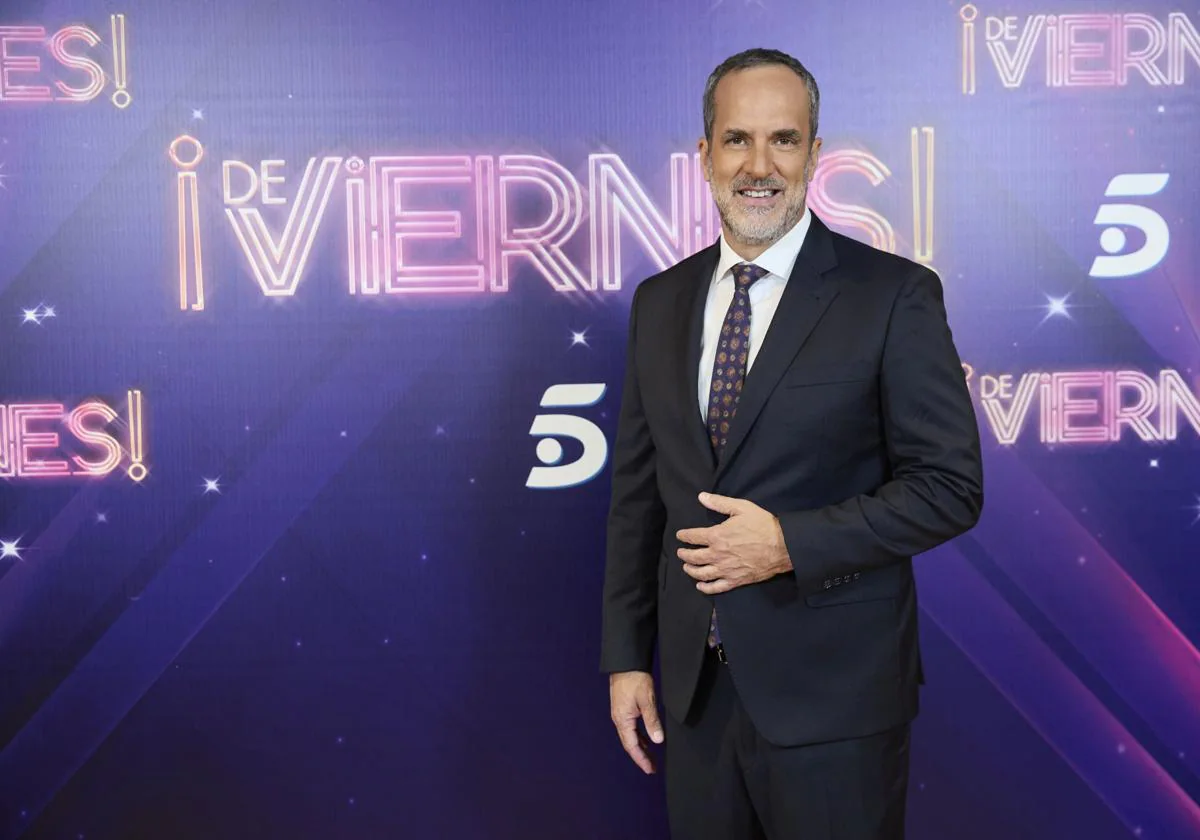"It is essential to empathise with the interviewee to get them to open up"
The presenter, alongside Beatriz Archidona, hosts the show 'De viernes', which celebrates its first anniversary on Telecinco
J. Moreno
Thursday, 21 November 2024, 00:35
One year ago, Telecinco introduced a new television programme that debuted with the exclusive testimony of Ángel Cristo. For the first time, Bárbara Rey's son dared to reveal the role his mother assigned him in her relationship with the emeritus king. Twelve months later, the interview continues to make headlines in the gossip press. The journalist Santi Acosta (Madrid, 56 years old) conducted the interview and presents 'De viernes' alongside Beatriz Archidona, the Telecinco gossip show celebrating its first anniversary on air this week.
–What is your assessment of 'De viernes'?
–People like it, and we enjoy doing it. So, for me, the balance is wonderful. It has been a privilege to be here these months with 'De viernes', working at Mediaset and with Beatriz Archidona. Truly, it is a privilege as a presenter to put a face to the team that gives their all every week because they work hard. To secure a good guest, you have to work hard until the end.
–Did you have the certainty that such a format could work and revive the gossip genre on television?
–I had hope and a couple of hints with some audience data to gauge the interest. We all believed there was a niche because there was interest. And we were right. In the end, television also has a bit of science. It's not just about launching a format on a whim, because we would crash. Television is often trial and error. And here, fortunately, we got it right. Guests want to return, leaving with the feeling that they were treated with respect. It's not the same to ask politely as it is in a hostile environment.
–What part do you attribute to the programme's success?
–What I enjoy most is making the interviewee feel comfortable because I believe that's how you get the most information. If I give you a stern look and ask two questions, you won't answer the third. But if I smile, you see that I won't attack you at any moment. You see you're comfortable, that you can share things with me as I might with you. Everything flows. But when we talk to interviewees, when we do the 'scoop' (an exclusive interview recorded before the live studio), there are days I talk more than they do. But it's necessary to empathise with the interviewee to get them to open up. There are very interesting lives, and I've learned that when people open up, they give you stories and teach you things.
–How do you handle comparisons with other gossip shows?
–I don't engage in comparisons, nor have I ever wanted to compare with other shows. Interviews and the gossip world have evolved since they were invented in the 19th century. There was a moment when the glamorous Hollywood gossip was abandoned in the 60s and 70s, and in Spain, we started doing a different kind of gossip. Those images of chasing Mar Flores' son, the same Carlos Constancia, were brutal. So, gossip has been changing. This is not an evolution of recent television shows like 'Sálvame' or 'Deluxe'. This is an evolution of the gossip world: we conduct interviews in a friendly environment where the interviewee responds in a much deeper way, I believe. We do what we love, and it has worked for us so far.
–Which guest made you break a sweat?
–Maite Galeano, who made me a love proposition. And those things are challenging for me because I come from a more, perhaps, formal journalism background. I come from news. And in those moments, I greatly admire Jorge Javier Vázquez; it's much harder for me. Between Beatriz Archidona, who pushes me whenever she can, and Julia Tapia (director of 'De viernes'), who pushes me even more through the earpiece, yes, those moments are a challenge.
–Do you see yourself presenting 'De viernes' for many more years?
–I think so. Usually, formats end because society no longer requires them or because you haven't evolved with people's tastes. What we have to do is get it right, and that's where Julia comes in, who knows a lot about television. The people you bring to the interview don't have the same audience; one character doesn't generate the same interest as another. So, they have to keep getting it right, and most of the success of 'De viernes' is due to the team.




